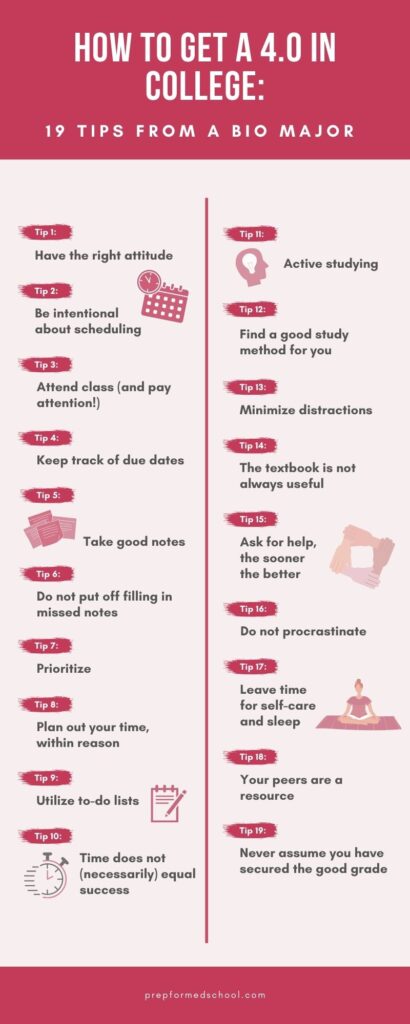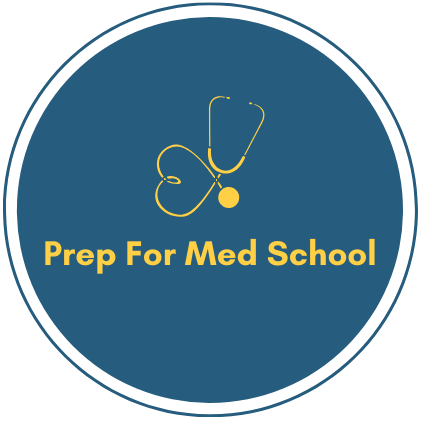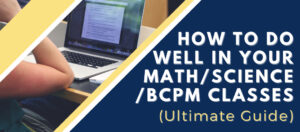Whether we like it or not, grades are an important part of college. Depending on your career path and if you are going to graduate school, your college GPA could play a role in what opportunities you receive. However, do not forget that grades are not everything.
I was not someone who had a 4.0 in high school. I did well, but there were several classes over the years that tripped me up, and I was fine with that. I have never been the person who gives up everything to push their grades to a 4.0. What I always cared most about was that I tried and put real effort into getting the best grades I could.
So it was much to my surprise when semester after semester in college, I got As. At first, I viewed it as luck that was sure to end at some point. But, as I moved into junior and senior year, I thought I might actually be able to pull off a 4.0, and I worked hard to keep it.
I will note that in my university, an A is an A. We did not do any plus/minus grading, so a 92% did not bring down your GPA. Also keep in mind that this article includes tips, not shortcuts. To succeed in your classes, you have to put in work.
I know that I am lucky that concepts tend to come easily to me and that I have always been a good test taker. Yet, I also know that my study habits and strategies are what propelled me to a 4.0. While it is by no means necessary to have a 4.0 to go onto great careers or graduate schools, I hope that these tips can help you be academically successful in college.
Tip 1: Have the right attitude

Attitude is very important to your success. I am an optimistic person, and I believe that is to my advantage in school. I always believed that I would do well on exams or assignments. If you don’t have confidence in yourself and your ability to succeed, then it becomes harder to do so.
I know that changing your attitude or self-confidence is no easy task. Take it slow. Give yourself words of affirmation on a daily basis and remind yourself of what you have accomplished to get this far. With time, you can start to believe what you are saying.
Your attitude also relates to your expectations. Make sure you are clear with yourself about what the semester will look like. College is hard, and it takes a lot of work to succeed. Also, make sure you have a clear reason for wanting a high GPA in the first place. It should be something that is important and valuable to you and your career.
Tip 2: Be intentional about scheduling

When I say scheduling, I mean both your course sequence and your course schedule for the semester.
Planning out what courses you want to take every semester is extremely helpful. Not only does it ensure that you have a plan to graduate on time and meet your degree requirements, but you might be able to balance the semesters out in terms of credit hours or courses that you know will be tough.
The other scheduling to think about is your courses each semester. This depends on the size of your university and if there are multiple sections offered per course. If you can, design your week to your advantage.
You can attempt to avoid morning classes, schedule classes back to back, or leave breaks during the day. Sometimes it takes a couple of semesters to learn your preferences, but once you do, try to set yourself up for success with your schedule.
Finally, I will make a note about extracurriculars. These are so important for so many reasons. You get involved with different experiences, you get a break from school, and you have fun. However, make sure you aren’t setting yourself up for failure by being deeply involved in too many different groups. Recognize your own limits in how many hours are in a week.
Tip 3: Attend class (and pay attention!)

This one might seem obvious, but attending class is very beneficial to your success. Research has shown positive correlations between class attendance in college and grades.
Not only is it important to be in class and absorb whatever the professor is saying, but attending class ensures that there is a set time, multiple times a week, where you will be focusing on this course. It can often take longer to catch up on missed classes than it does to attend in the first place.
Another benefit of attending class is that you are making yourself visible to your professor. Even if you are in a large class, having some level of recognition helps. A student looking for help at the end of the semester who has attended most classes appears much more dedicated than someone who was never seen.
Once you are in class, make sure you pay attention. Hopefully you are taking courses that interest you on some level, since you choose your own major. Inevitably, however, there are a few courses that do not seem interesting or relevant. I guarantee that paying attention in these cases is a better use of your time than trying to learn the material yourself later on.
Tip 4: Keep track of due dates

Keeping track of due dates, and organization in general, is essential to succeeding in college. You need to know what big projects and exams are coming up so you can adequately prepare. Missing even small assignments can hurt your grade in ways that are hard to recover from.
There are various ways of keeping track of due dates. You could put them into your phone’s calendar and include reminders. You could use a specific app. You could write the dates into a wall calendar in your room. I always used a planner color-coded by subject.
By doing this early on in the semester, you might notice that in two months you will have three exams in one day. Or you notice that you have two projects due after a break and will need to plan accordingly. This helps to avoid surprises, as well as to avoid forgetting to submit an assignment on time.
Tip 5: Take good notes

Notes are a very important part of learning and studying, especially for lecture-based courses. There are many different ways that people prefer to take notes. Make sure that you actually write things down, and that your notes will be useful for exam review.
The most important information to be writing down is what the professor says, not what is on the slide. Oftentimes professors post slides for you to look at later, but you can never re-hear what they said. And you don’t want note-taking to interfere with actually listening to the professor. Additionally, good notes can serve as a useful study tool later on.
Writing notes by hand, rather than typing, increases your learning of the material. Putting the notes into your own words, rather than copying verbatim, also facilitates learning by forcing you to process the information on a deeper level.
After taking notes fairly plainly for most of college, I found that color-coding worked well for me. I previously thought that color-coding required far too much work and would prevent me from actually paying attention, but this was not the case.
I simply used highlighters to underline or box certain pieces of information. Different colors represented different categories of the notes, such as vocabulary or equations.
These simple additions to my notes were invaluable when I needed to study. I could quickly scan pages of notes for the one equation mentioned. Useful vocab words popped out of the page. Figures drawn in color were so much easier to interpret than those drawn all in grey.
While color-coding might not be the best method for every person or for every class, I encourage everyone to experiment with different note-taking methods to find what works.
Tip 6: Do not put off filling in missed notes

This tip is simple, but important. For one reason or another, people miss class, or people miss writing information down while in class. When this happens, do not wait to fill in the notes you missed.
The last thing you want is to put it off until before the exam, and then you find sections or pages of information missing during your review. Precious time is then spent mindlessly copying notes rather than actually studying.
Tip 7: Prioritize

There are inevitably times in college when you have a lot to get done. This is when prioritization becomes helpful.
Order your tasks by how important they are. This way, if you run out of time you at least accomplished the most important things. Or, if you become tired and perform poorly at the end of the night, at least it is on the less important tasks.
I prioritize both by assignment and by course. Consider which exams or projects coming up are worth the biggest percentage of your grade, and make those the highest priority. Balance this with how you are doing in each course. Focus on the courses where you have the worst grade, or where you are on the cusp between two different letters.
Tip 8: Plan out your time, within reason

College is all about time management. Often students juggle coursework with clubs, volunteering, research, and jobs. If you fail to think about how you are going to plan your time, then it becomes easy to fall behind. On the other hand, things do come up, and attempting to plan out every minute does not always work either.
What I preferred was to make a list of what I needed to get done in a day. This included both what was due the next day, as well as any initial work I wanted to do for exams or projects coming up. I would then write how many minutes I expected each task to take, and I would rank them in order of importance.
I would usually draw a line between what absolutely had to get done that day, versus what was extra work to lighten my load in the coming week. This helped me get an idea of the range of time that I needed to be working. It would help me realize if I had absolutely no free time to spare, or if I could relax a bit after class before getting to work.
Don’t forget to take into account all activities that take up time. Block out time in your calendar, or at least mentally, for when you will be working out, at meetings, eating dinner, etc. Taking into consideration all aspects of life helps you realize how much time you really have.
Tip 9: Utilize to-do lists

To-do lists, for me, are very helpful, and research has confirmed their positive effect. Not only do I use them as mentioned to plan out my time, but I use them to organize all aspects of my studying.
I like to keep multiple to-do lists on my phone, with different lists for what I need to do for classes, extracurriculars, chores, etc. Having the list always with me makes it easy to add things as I think of them so nothing gets forgotten.
When I am planning out my time and making a list of what I want to get done that day, I can consult both my planner and these lists so I don’t leave out anything. This is especially useful around midterm and finals, when I plan out overall and by day everything that needs to get done for me to stay on track.
Tip 10: Time does not (necessarily) equal success

It is a common misconception that putting in a large amount of time studying will guarantee you a high grade. It is more important to put in efficient and high-yield study time. Five hours of rereading lecture slides will not be nearly as beneficial as two hours of doing a practice exam, for example.
I know it can be hard to make changes to your study strategy and try something new. But, if you feel like your grades are not reflecting the work put in, one potential solution is to change up how you are spending this time.
Tip 11: Active studying

This is my number one tip, and it relates strongly to tip 12. The best way to get the most out of your study time is to study actively, not passively.
Passive studying is what it sounds like—reading a textbook or looking over notes without doing anything to engage your brain. There are a variety of ways to make studying active ranging from going over flashcards to making concept maps to doing full practice exams.
The important part is that you force your brain to be more active in taking in and using the information. This engages you more with the material. Presenting the information to yourself in different ways, as compared to how you receive it in lecture, is what really solidifies the content.
I like to think of studying as trying to replicate what your exam situation will be like. If your physics exam will be doing several in-depth problems, then the best way to study is to do problems out of the book or a practice exam. Concepts can often appear to make sense if you look over your notes, but when you attempt a real problem you can figure out what trips you up.
Active studying relates closely to active recall. Active recall is a study method that involves quizzing yourself about the material. This keeps you engaged and is very effective.
Tip 12: Find a good study method for you

There are a variety of different study methods that you can try out. Figure out what works best for you to keep you motivated and efficient.
A popular study method that I have used off and on is the Pomodoro method. This involves using a timer to study for increments of 25 minutes with 5-minute breaks in between. After 4 cycles, you take a longer break. I like this method because you can motivate yourself to study for a short period of time more easily than if you try to sit down for a 2-hour study session.
A similar method is working through a certain task or amount of work before taking a break. I would often do this as well. I would make myself finish five problems or get through a section of the textbook before taking a short break. The key here is to keep the break short.
What I don’t love about these methods is sometimes you get in the zone and could actually keep on working for longer than intended. Yet, when you finish what you were planning or the timer goes off, you feel the need to take a break even if you could’ve kept working.
I tended to work without a timer or anything unless I was having trouble staying on task and needed some extra motivation. I would always try to set timers for my breaks, as I constantly lost time to short breaks that would turn into hours.
Tip 13: Minimize distractions

This is a tip that is easier said than done. I know I spent way more hours than was necessary trying to study in the common room with my friends when I could have gotten the work done in a fraction of the time if I had gone somewhere quiet.
There are many forms of distractions, so do your best to minimize them. If you are going to work around others, make sure they will also stay focused and not cause you to get off task for extended periods of time. Turn your phone off, or at least put it on airplane mode.
You can also be intentional about where you study to make it the most efficient for you. There are usually many different potential study locations on a college campus. Try out different areas and see what works best for you.
Tip 14: The textbook is not always useful

For me, I found that the vast majority of the time I barely used the textbooks I purchased for class. This is not me saying not to buy them, but rather that reading through the textbook chapters is not always the best use of your time.
In my opinion, the best use of your textbook is as supplemental material. If after attending lecture, reviewing your notes, and maybe even doing some practice problems, you are still struggling with a concept, then your textbook could be a great place to gain new insight on the material.
This excludes the practice problems in textbooks, which are often assigned as homework, or are just useful to study the material. Some people who are faster readers or learn differently might get a lot more out of textbooks as well.
Tip 15: Ask for help, the sooner the better

On a college campus, there are typically many free resources intended to help you with school work. If you find yourself confused in a class, or starting to fall behind, ask for help. You are doing yourself no favors by waiting.
Professors are there to help you, and going to office hours is not only a great way to get questions answered, but it allows you to get to know the professor. This can be useful once you need letters of recommendation.
You can also take advantage of whatever other resources your campus has. Maybe student leaders hold organized study groups. Many campuses offer free tutoring. My university had a writing center for essay help. Whatever it is, utilize it.
Tip 16: Do not procrastinate

Procrastination seems to be one of the biggest problems that students face, and it correlates with decreased performance in school. I struggled immensely with this and still have not overcome it.
Procrastination is putting off your studying and assignments until the last possible moment. It causes unneeded stress and sleep deprivation, yet so many students do it anyway. Students do this to get more free time today, even if that means having a very busy and stressful tomorrow.
Making lists and planning out your time can help with procrastination. If you plan out exactly what you want to do each day of the week, ahead of time, this can help to space things out.
Making time to study over a greater period of time, rather than all at once, will also improve your learning. This is spaced repetition, when you review material multiple times over a time range to strengthen your understanding and memory of it.
While sometimes school can become all about the grades, remember that you are there to learn. Learning the material effectively the first time will serve you better in the long run. Often final exams are cumulative, and learning the material initially will prevent you from having to relearn everything for the final.
As a premed, this is very helpful for the MCAT. The MCAT covers at least 10 different semesters of material. If you studied effectively in college, then the MCAT will only require refreshing the material rather than learning it again.
Tip 17: Leave time for self-care and sleep

Due to busy schedules and procrastination, many students do not leave any time for themselves and their mental and physical needs. Yet, students engaging in self-care have reported increased quality of life and less stress.
Your body is not a machine, and you cannot push it endlessly without suffering. This includes your brain and mind. If you never take breaks or do anything for yourself, you will burn out. Self-care looks different for everyone, but make sure you are setting aside time to relax and destress, however that might be for you.
Sleep is also extremely important. Your brain functions best when properly rested. There have been many studies showing the benefits of sleep for students. It helps your immune system. It allows you to think more clearly. Sleep even strengthens the connections in your brain which solidifies whatever you had learned that day.
Tip 18: Your peers are a resource

A great way to study for classes, especially when exams roll around, is with your peers. This could be in a formal study group, or something more casual with friends.
I was lucky that most of my close friends were in the same major, so we had a lot of classes together. It was always useful to have someone to bounce questions off of or help figure out what a homework question was asking.
On the day of exams we would often walk over to the testing location together and do some last-minute reviewing and quizzing of each other. Sometimes we would also meet in the library and use the whiteboards to go over all of the material together.
Study groups are a great way to have another mode of learning. For me, speaking concepts out loud and explaining things to others really helps to solidify my own understanding.
Tip 19: Never assume you have secured the good grade

I always calculate what I need on final exams or projects so that I know how well I need to do. This can reveal the courses in which your grade seems almost guaranteed. Make sure you never assume that a class requires no more effort.
I experienced this freshman year when I decided not to study at all for my chemistry final because I had calculated that I only needed a low 60%. By not giving any time to the subject, the final was very difficult, and I barely got the grade that I needed. I almost dropped a letter grade just because I was lazy and made assumptions.
Not studying at all for a final is a bad idea, no matter what score you need. The same applies to putting low effort into a final research paper, assuming you will get the points you need.
Conclusion
I hope that these tips will help you succeed in your undergraduate career. College is difficult, and unfortunately not everyone is able to do as well as they would like. Always remember, grades are not everything.
Plenty of people go onto great graduate or medical programs after having gotten Bs and Cs in college. Even a D is not the end of the world.
If you put effort into a class and genuinely tried, then be proud of the grade that you earned. Some people have certain subjects that are just really difficult for them. Sometimes people have a bad semester due to other factors in their lives.
Grades do not define you as a person, so do not let them break you.






